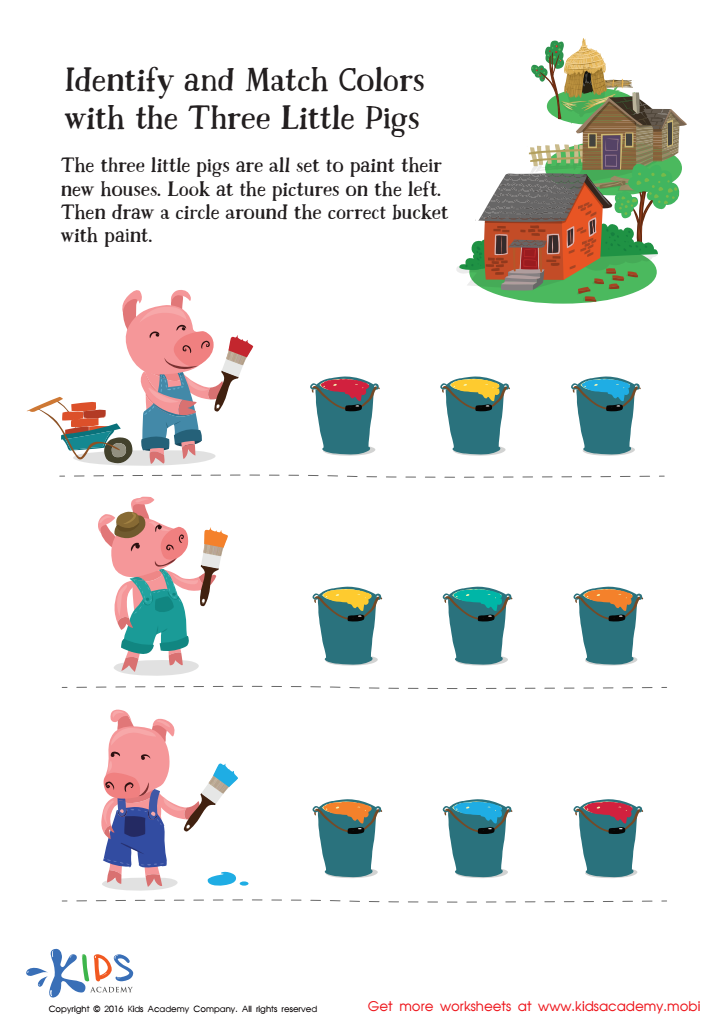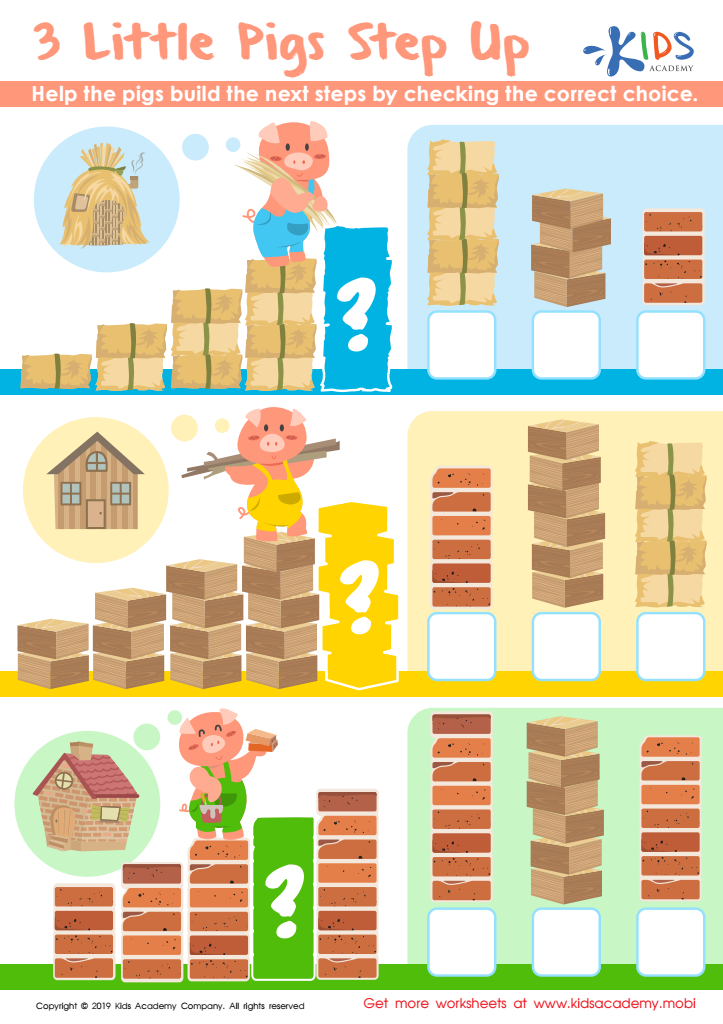Story comprehension Math Worksheets for Ages 4-6
3 filtered results
-
From - To
Enhance your child's learning experience with our engaging Story Comprehension Math Worksheets, specially designed for ages 4-6. These worksheets combine math skills with fun storytelling, helping young learners to develop their comprehension abilities while practicing essential math concepts. Your little ones will enjoy solving problems based on relatable stories, making learning both enjoyable and interactive. Our worksheets are aligned with early educational standards, encouraging critical thinking and cognitive development. Perfect for use at home or in the classroom, these resources provide a delightful way to foster a love for learning while strengthening foundational math skills. Start exploring today!


Fairy Tale Worksheet: Identify and Match Colors with Three Little Pigs


Fairy Tale Worksheet: Count and Classify with Rapunzel


3 Little Pigs Step Up Worksheet
Story comprehension in mathematics for children ages 4-6 is crucial because it bridges the gap between literacy and numeracy, enhancing overall cognitive development. At this stage, children are naturally curious and love narratives. Integrating story comprehension with math lessons allows young learners to grasp mathematical concepts in relatable contexts. This approach improves their ability to understand problem-solving scenarios, which is fundamental for their future learning paths.
Stories provide a framework for children to visualize and contextualize mathematical tasks. When parents and teachers encourage story-centered math activities, they help reinforce critical thinking and analytical skills, allowing children to connect abstract numbers to real-world situations. This not only makes learning enjoyable but also fosters a love for both storytelling and mathematics.
Moreover, emphasizing story comprehension in math promotes language development as children learn to articulate their thought processes. It equips them with essential skills to navigate increasingly complex problems in later grades. When educators and parents prioritize this integrative approach, they lay a strong foundation for resilience and adaptability in both learning styles and challenges, encouraging lifelong learners and problem solvers. Therefore, attention to story comprehension in math during this formative stage is a key investment in a child’s academic future.
 Assign to My Students
Assign to My Students




















